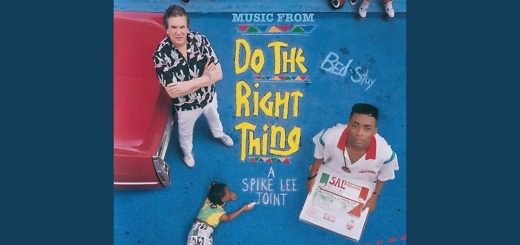Catching Our Breath on One-Hit Wonders


Recently, I heard the English pop group Breathe referred to as a “one-hit wonder,†and I was rather taken aback. The reference in this case was, predictably, to their song “Hands to Heaven,†which peaked at number 2 on the Billboard Hot 100 chart in the summer of 1988. Yet, to someone like me who followed pop music and the Billboard charts at the time, the idea that “Hands to Heaven†was Breathe’s only hit seems ludicrous. Their biggest hit? Sure. Their only hit? No way. Right on the heels of “Hands to Heaven,†the song “How Can I Fall?†went to number 3 that fall/winter, followed by “Don’t Tell Me Lies†reaching number 10 in the late winter/spring. It’s certainly no stretch at all to consider a song that hits the Top Ten a hit. So, as I judge it, there’s no way that Breathe can be a one-hit wonder.
There may be a little more legitimacy to calling them a “one-album wonder,†as the album/tape/CD with these three songs—All That Jazz—was the only Breathe offering to produce any Top 20 pop hits. Yet even that could be argued, as their follow-up recording, Peace of Mind, produced two Top 40 (but not Top 20) hits in “Say a Prayer†and “Does She Love That Man?†Additionally, given that these two songs made the Top 40, there’s a good argument for considering Breathe to have had five hits, not just one. Furthermore, if one considers Adult Contemporary (often also known as “Lite Rockâ€) as a legitimate forum for “hits,†Breathe’s track record is even better, as all five of these songs hit the Top 20, with all but “Does She Love That Man?†hitting the Top 5. Indeed, it was “How Can I Fall?†not “Hands to Heaven†that reached number 1 in adult contemporary radio. One could also add to this mix the song “All This I Should Have Known†from All That Jazz, which cracked the Adult Contemporary Top 40 in 1989.
Of course, all of this is predicated on certain kinds of definitions of “one-hit wonder†that are based solely on levels of chart performance, which themselves can be subjective. After all, what heights on the charts must a song attain to be a “hit.†Is it Top 40? Is it Top 20? Is it even just making the Top 100? Each definition leaves something to be desired. Consider, for instance, the case of the Modern English classic “Melt With Youâ€â€”a song many people know and remember. It never even cracked the Top 75, peaking at number 78 in 1983 and then, after getting a resurge in popularity, hitting number 76 in 1990. Or, to take another case, think of Madonna’s song “Into the Groove,†which is highly notable and highly remembered but never technically charted because it was not released as a 7-inch single and, thus, was ineligible for the Hot 100 chart based on Billboard’s rules at the time.
These two examples point us to another possibility for defining the “one-hit wonder.†Perhaps, we should remembered hits by the degree to which songs are remembered. So, in this argument, a performing artist is a one-hit wonder if he/she/they are primarily remembered for only one song. This argument might say that for as much as Breathe had other songs perform well on the charts, they are, for the most, primarily remembered just for “Hands to Heaven†and, thus, are a one-hit wonder. This argument, though, has its problems as well. For instance, Men Without Hats are primarily remembered for “The Safety Dance,†but a lot of people may also remember “Pop Goes the World.†One could also argue any of the following:
ï® Bruce Hornsby is primarily remembered for “The Way It Is,†though many would also remember “Mandolin Rain,†“Every Little Kiss,†and “The Valley Road,†among others.
ï® Whitesnake is primarily remembered for “Here I Go Again,†but “Is This Love†was awfully big, as were a number of other songs that both made and didn’t make the charts.
ï® People get rick-rolled with Rick Astley’s “Never Gonna Give You Up,†which is the song by which he is probably best remembered, but should we forget “Together Forever†and “She Wants to Dance With Me,†among others?
ï® In what might be a perfect example here, it could be argued that Naked Eyes is primarily remembered for “(There’s) Always Something There to Remind Me,†but “Promises, Promises†is pretty significant as well.
The bottom line here is that perhaps we need to rethink the “one-hit wonder†concept. I suppose it’s a nice, easy way to put a number of classic songs together on one compilation, and I suppose it might help make sure some of these classics are not forgotten. But, in the process, doesn’t it end up causing a lot of great songs to get lost in the shuffle?
And, while you’re thinking of that, remember a band like When it Rome, which is much more fitting of the “one-hit wonder†designation. After all, they’re primarily remembered only for “The Promise,†and that was they’re only song to chart high (number 11 in late 1988). But, then again, their follow-up “Heaven Knows†did hit the Top 100 (number 95) and hit number 14 in dance club play in 1989. Do we really want to miss out on this stuff?





